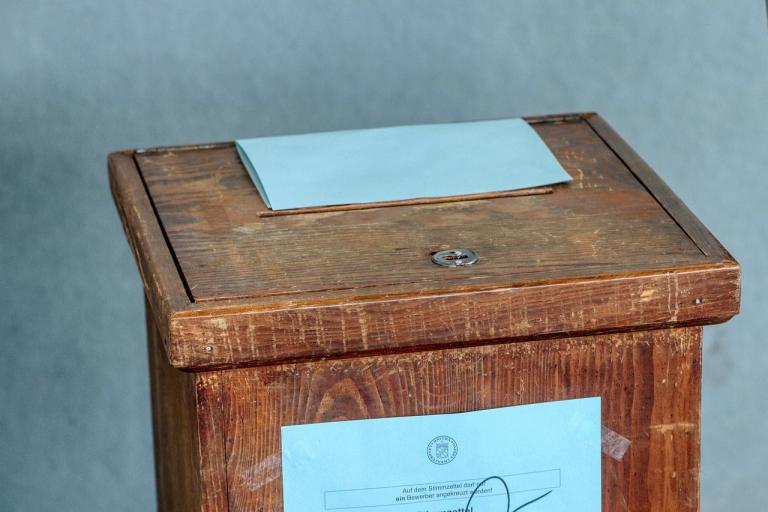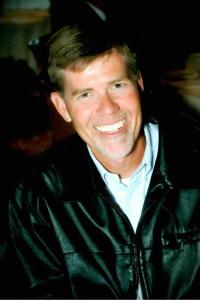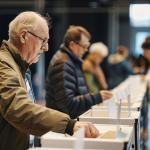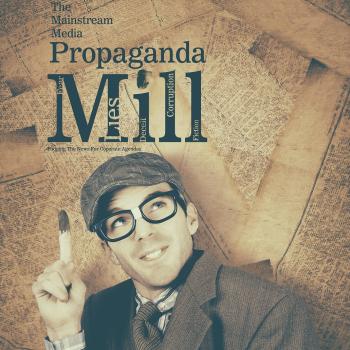
The Kingdom of God Isn’t on the Ballot: A Guide to Voting with Purpose
“Today is the day of salvation” (2 Cor 6:2).
Okay, I am not applying this text to tomorrow’s election. Unfortunately, many Christians do. In saying this, I don’t intend to undermine those with serious convictions about the election.
But I would note that the Church existed for well over a thousand years before the US was founded. And the Church thrives today in places like China, N. Korea, and Iran. The Church doesn’t need the US to be the Church.
With that being said, here are my thoughts on who and what to vote for as you go to the polls tomorrow:
For President %$%$QQ$T%QW
(You should certainly vote this way! I would even say, “All Christians must vote this way. And if you don’t, maybe you are not a Christian.”) For those who may not be used to my sarcasm, that was definitely sarcasm.
For Congress @#$U(^&^W$%Q% (Same)
For your state elected officials 09q4q90qerqw$$%$ (yep, all true Christians vote this way)
The major issues that should determine how we vote are:
- $%#673#$%$#%
- #$^*(wsg%T$#5
That’s it; just two issues are all that matter for every Christian!
I’m sorry, but what I wrote above looks great on my end. Every time I hit “send,” the text changes to what is shown above. It must be my accountability software.
Understanding the Kingdom of God and how that impacts our approach to politics
Over the past 7 months, we at Determinetruth hosted 20+ livestreams in preparation for the coming election (see the Determinetruth YouTube page and the playlist “Politics and the Church.” Be sure to SUBSCRIBE). We also produced an additional 7 livestreams on the Gospel and the Kingdom.
We had several objectives in putting these conversations together.
First, we wanted to lay a foundation regarding “What is the kingdom of God?” One of our primary concerns about the Church in the West is our poor understanding of the kingdom.
“Why is this a problem, and how is it relevant to politics?” I’m glad you asked.
Understanding the kingdom of God provides the framework, game plan, and agenda for the people of God. It details what we are called to work towards.
NB: There has been much debate on the relationship between the Church and the state, so for one of our livestreams, we talked with noted biblical scholar Michael Bird.
The Gospel of self-denial
Second, we wanted to help the Church understand the Gospel and what it means to think politically in light of the kingdom of God.
The Western world is highly individualistic. Unfortunately, much of this has infected the Church.
If you are like me, you have been inundated with text messages telling us who to vote for or, more commonly, who not to vote for. Virtually every political advertisement, whether TV or text message, appeals to our self-interest. Most run along the lines of “This candidate is bad for you because. . . .” Though there is the occasional, “This candidate is good for you because. . . .”
Either way, they appeal to our self-interests.
Yet the Gospel is, “Deny yourself, take up your cross, and follow Me” (Mark 8:34).
The Gospel also says, “Love your enemies” (Luke 6:27, 35).
We can’t love our enemies, let alone our neighbor unless we first recognize the self-sacrificing demand of the Gospel.
The radical call of the Gospel is, “We know love by this, that He laid down His life for us; and we ought to lay down our lives for the brethren” (1 John 3:16).
These constant appeals to what is best for me undermine the missional call we have to lay down our lives for one another.
Loving our neighbor means understanding them
Third, we wanted to provide an understanding of some of the issues (Christian Nationalism, abortion, Critical Race Theory, Mass Incarceration, Islam, and War) so that we can understand the other side.
We did not intend to say, “This is the correct way to think, believe, or vote” on a given issue. But we wanted you to understand why others might believe, think, or vote differently than you.
Thus, we did livestreams on race and CRT so that we might better understand the issues that matter for people of color and why they think, believe, and vote the way they do.
Critiquing our own
Fourth, we want to challenge Christians to critique our own views.
If we believe that Jesus is the Truth and all truth derives from Him, then we have nothing to fear when it comes to the truth.
But why is it that Christians can be some of the most close-minded people? What are we afraid of?
We should be more afraid of believing a lie. After all, lies come from the evil one, “Whenever he speaks a lie, he speaks from his own nature, for he is a liar and the father of lies” (John 8:44).
It is one thing to advocate for a particular political party or candidate. It is another thing, however, to believe that your party or candidate is infallible.
When we fail to critique our own, when we fail to acknowledge that we may be wrong, when we fail to listen to the other, we fail to love God.
When you go to the polls this week
When you go to the polls this week, remember that the kingdom of God is not on the ballet. Sure, you might be convinced that the nation’s well-being is at stake. Even so, the Church will survive. The question is, “Will it survive well?”
We refuse to put these posts behind a paywall as this hinders the poor from accessing the information. But we can only continue these posts with the support of those of you who can afford to give. So, if you can afford to give $5, $10, $25, or $1 million/month, please do so. You can give a tax-deductible contribution by following this link.
Please share this post and let others know about determinetruth.
If you wish to view this blog on your smartphone through the Determinetruth app, download the “tithe.ly church” app and insert “determinetruth” as the name of the church you wish to follow. Once it is loaded, click on the “blog” icon, and it will automatically load.
If you would like Rob to speak to your church, organization, or group in person or via Zoom, please let us know by filling out the contact info on the Contact Me tab on this site.














